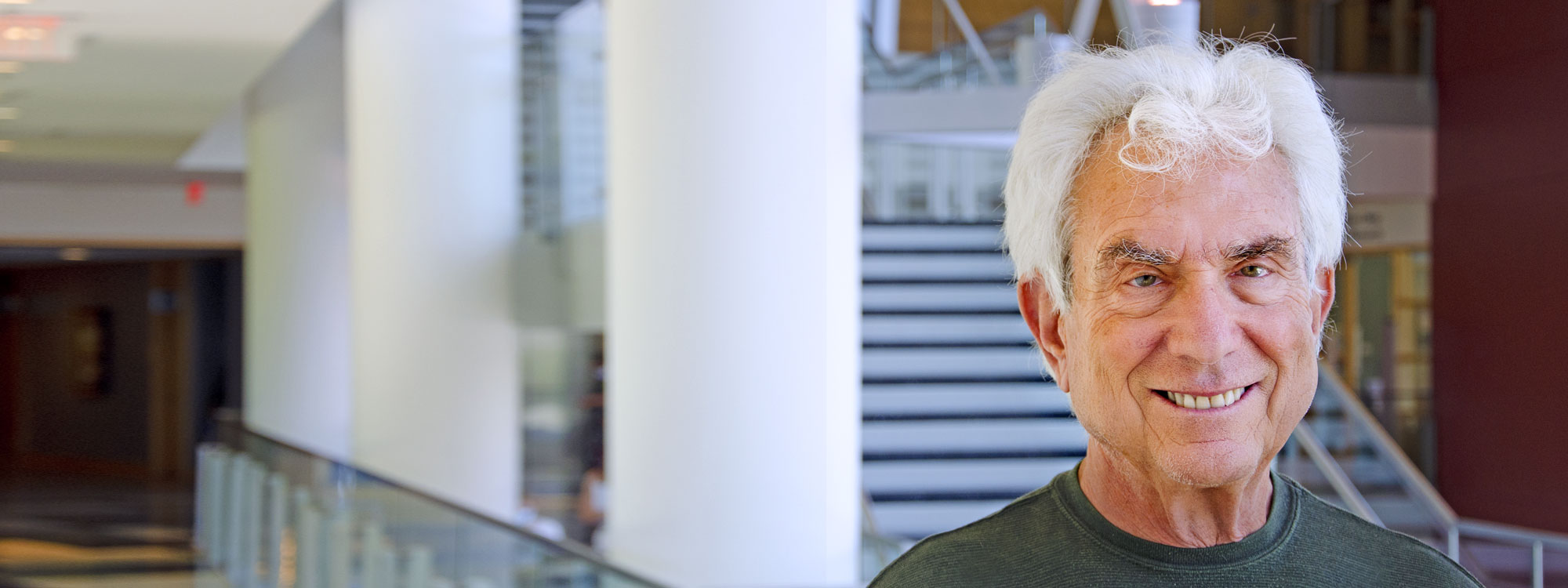Michael Karin, Ph.D.
Distinguished Professor of Pharmacology and Pathology, Ben and Wanda Hildyard Chair for Mitochondrial and Metabolic Diseases
Research Interests
My laboratory studies basic biochemical and cell biological processes that control innate immunity and inflammation and their contribution to cancer and metabolic disease. In particular, we are interested in the basic pathogenic mechanisms that contribute to non-alcoholic fatty liver disease (NAFLD) and its progression to steatohepatitis (NASH), liver fibrosis, and liver cancer (hepatocellular carcinoma, HCC). We also study the control of hepatic and pancreatic autophagy and its role in liver and pancreatic tumorigenesis, mitochondrial control of inflammation and its contribution via the NLRP3 inflammasome to the pathogenesis of Alzheimer’s disease and other neurodegenerative disorders. Another important topic we study is the interaction between chronic inflammation and immunity during tumor development and therapy. We hope to exploit the basic knowledge gathered in such studies to improve the outcome of cancer immunotherapy. Our laboratory research applies biochemical, molecular genetics, mouse models, and bioinformatic approaches.
Selected Publications
He G, et al. (2013) Identification of liver cancer progenitors whose malignant progression depends on autocrine IL-6 signaling. Cell, 155:384-96.
Nakagawa, H et al, (2014) ER stress cooperates with hypernutrition to trigger TNF-dependent spontaneous HCC development. Cancer Cell 26(3):331-43.
Font-Burgada J, et al. (2015) Hybrid periportal hepatocytes regenerate the injured liver without giving rise to cancer. Cell, 162:766-69.
Taniguchi KY et al, (2015) A gp130-Src-YAP module links inflammation to epithelial regeneration. Nature, 519:57-62.
Shalapour S, et al. (2015) Immunosuppressive plasma cells impede T cell-dependent immunogenic chemotherapy. Nature, 521(7550):94-8.
Zhong Z, et al. (2016) NF-κB restricts inflammasome activation via elimination of damaged mitochondria. Cell, 896-910.
Todoric J, et al. (2017) Stress-Activated NRF2-MDM2 Cascade Controls Neoplastic Progression in Pancreas. Cancer Cell, 32:824-839.
Shalapour S, et al. (2017) Inflammation-induced IgA+ cells dismantle anti-liver cancer immunity. Nature, 551:340-345.
Zhong Z, et al. (2018) IRF1-dependent new mitochondrial DNA synthesis enables NLRP3 inflammasome activation. Nature, 560:198-203.
Kim JY, et al. (2018) ER Stress Drives Lipogenesis and Steatohepatitis via Caspase-2 Activation of S1P. Cell, 175:133-145.
Sanchez-Lopez E, et al. (2019) Choline Uptake and Metabolism Modulate Macrophage IL-1β and IL-18 production. Cell Metabolism, 29:1350-1362.
Todoric J, et al. (2020) Fructose stimulated de novo lipogenesis is promoted by inflammation. Nature Metabolism, 2:1034-1045.
Xian H, et al. (2021) Metformin inhibition of mitochondrial ATP and DNA synthesis abrogates NLRP3 inflammasome activation and pulmonary inflammation. Immunity, 54:1463-1477.
Su H, et al. (2021) Cancer cells escape autophagy inhibition via NRF2-induced macropinocytosis. Cancer Cell, 39:678-693.

